第73章 OUR ARCHERY CLUB(1)
When an archery club was formed in our village, I was among the first to join it. But I should not, on this account, claim any extraordinary enthusiasm on the subject of archery, for nearly all the ladies and gentlemen of the place were also among the first to join.
Few of us, I think, had a correct idea of the popularity of archery in our midst until the subject of a club was broached.
Then we all perceived what a strong interest we felt in the study and use of the bow and arrow. The club was formed immediately, and our thirty members began to discuss the relative merits of lancewood, yew, and greenheart bows, and to survey yards and lawns for suitable spots for setting up targets for home practice.
Our weekly meetings, at which we came together to show in friendly contest how much our home practice had taught us, were held upon the village green, or rather upon what had been intended to be the village green. This pretty piece of ground, partly in smooth lawn and partly shaded by fine trees, was the property of a gentleman of the place, who had presented it, under certain conditions, to the township. But as the township had never fulfilled any of the conditions, and had done nothing toward the improvement of the spot, further than to make it a grazing-place for local cows and goats, the owner had withdrawn his gift, shut out the cows and goats by a picket fence, and, having locked the gate, had hung up the key in his barn. When our club was formed, the green, as it was still called, was offered to us for our meetings, and, with proper gratitude, we elected its owner to be our president.
This gentleman was eminently qualified for the presidency of an archery club. In the first place, he did not shoot: this gave him time and opportunity to attend to the shooting of others. He was a tall and pleasant man, a little elderly. This "elderliness," if I may so put it, seemed, in his case, to resemble some mild disorder, like a gentle rheumatism, which, while it prevented him from indulging in all the wild hilarities of youth, gave him, in compensation, a position, as one entitled to a certain consideration, which was very agreeable to him. His little disease was chronic, it is true, and it was growing upon him; but it was, so far, a pleasant ailment.
And so, with as much interest in bows and arrows and targets and successful shots as any of us, he never fitted an arrow to a string, nor drew a bow. But he attended every meeting, settling disputed points (for he studied all the books on archery), encouraging the disheartened, holding back the eager ones who would run to the targets as soon as they had shot, regardless of the fact that others were still shooting and that the human body is not arrow-proof, and shedding about him that general aid and comfort which emanates from a good fellow, no matter what he may say or do.
There were persons--outsiders--who said that archery clubs always selected ladies for their presiding officers, but we did not care to be too much bound down and trammelled by customs and traditions. Another club might not have among its members such a genial elderly gentleman who owned a village green.
I soon found myself greatly interested in archery, especially when I succeeded in planting an arrow somewhere within the periphery of the target, but I never became such an enthusiast in bow-shooting as my friend Pepton.
If Pepton could have arranged matters to suit himself, he would have been born an archer. But as this did not happen to have been the case, he employed every means in his power to rectify what he considered this serious error in his construction. He gave his whole soul, and the greater part of his spare time, to archery, and as he was a young man of energy, this helped him along wonderfully.
His equipments were perfect. No one could excel him in, this respect. His bow was snakewood, backed with hickory. He carefully rubbed it down every evening with oil and beeswax, and it took its repose in a green baize bag. His arrows were Philip Highfield's best, his strings the finest Flanders hemp. He had shooting-gloves, and little leather tips that could be screwed fast on the ends of what he called his string-fingers. He had a quiver and a belt, and when equipped for the weekly meetings, he carried a fancy-colored wiping-tassel, and a little ebony grease-pot hanging from his belt. He wore, when shooting, a polished arm-guard or bracer, and if he had heard of anything else that an archer should have, he straightway would have procured it.
Pepton was a single man, and he lived with two good old maiden ladies, who took as much care of him as if they had been his mothers. And he was such a good, kind fellow that he deserved all the attention they gave him. They felt a great interest in his archery pursuits, and shared his anxious solicitude in the selection of a suitable place to hang his bow.
"You see," said he, "a fine bow like this, when not in use, should always be in a perfectly dry place.""And when in use, too," said Miss Martha, "for I am sure that you oughtn't to be standing and shooting in any damp spot.
There's no surer way of gettin' chilled."
To which sentiment Miss Maria agreed, and suggested wearing rubber shoes, or having a board to stand on, when the club met after a rain.